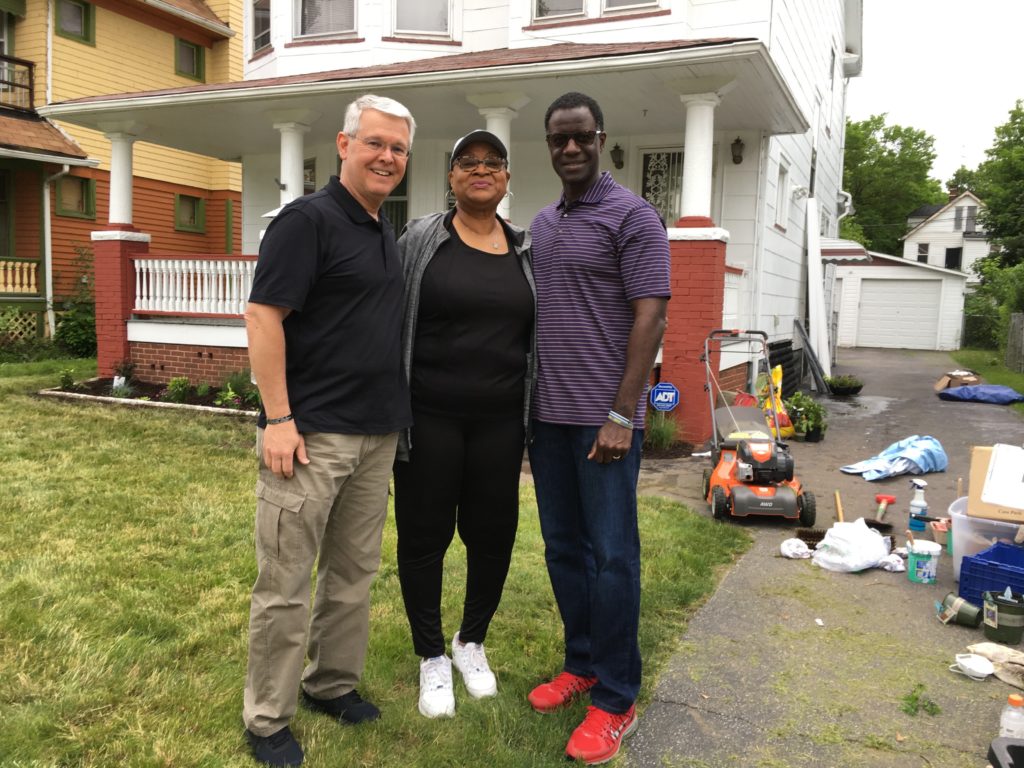It was a Sunday afternoon in October 1973. I was sitting in the living room reading the Sunday paper and waiting to head to the hospital to visit my mom. She had been in the hospital for a month with pneumonia and then pleurisy. We were supposed to bring her home on Monday. Instead, we buried her on Thursday. She was just over 40 years old. I was 16.
Three years later, I was a military policeman stationed in Germany. My friends and I had just gone to see a movie, and believe it or not, we had chosen Echoes of Summer—a movie about a dying 11-year old girl. And, I, the boy who had not really cried for his mother, wept for three hours in the arms of a comrade who neither understood nor condemned me. He merely held me until my wracking sobs subsided.
So why am I telling you this? Because grief is real. It’s all around us in this current world of COVID-19 and chaos. None of us are immune to grief, nor can we necessarily control the sources of our grief. And each of us may be the one who weeps or the one who is called on to be there to listen, to hold and to sanctify the tears of another. So, here are some things you might consider as you confront grief and loss:
- Loss will raise emotional issues for you, your family and those to whom you minister: Be there emotionally for the person; you will need to be there for the long term.
- Isolation is a real threat and stress producer (perhaps even more now than normal): Be creative – Use the phone or video chat, letters or cards, social media, talk across fences and yards and porches. No matter how you do it, connect.
- Normal resources will be hard to access: Encourage honest expression of feelings so people know it’s okay and normal to grieve.
- Loneliness, helplessness and hopelessness will raise their heads: Listen and validate while avoiding platitudes or words that discount feelings.
- Take care of yourself by following these simple steps:
Face your feelings—you can run but not hide for long, and unresolved grief can lead to complications.
Express your feelings in tangible and creative ways. Journal, write letters, poetry and songs.
Try to maintain hobbies and interests. Routine and recreational activities can bring joy and connectivity.
Don’t let anyone tell you how to “feel.” Your grief is unique and will be resolved in its own time.
Plan ahead for triggers (sights, sounds, scents). You can’t know every time grief will hit, but things like anniversaries, lifecycle events and holidays go better if everyone knows and manages realistic expectations.
Look after your physical health. Dr Gregory Jantz in Christian Counseling Today (Vol. 24, No. 2, pp. 38-40) suggests that we (1) Eat Right (Healthy Nutrition) (Daniel 1:12,15), (2) Engage in Physical Activities (I Cor. 9:24-27); (3) Get proper Sleep and REST (Prov. 3:24; Ps. 4:8); (4) Develop and nurture Gratifying Relationships (Prov. 18:24); and (5) Practice the Disciplines that lead to Spiritual Renewal (Lam. 3:22-24)
- And remember you are NOT alone so surround yourself with a support network. Reach out to family and friends. Contact your pastor, church leaders, and church family. Contact fellow chaplains, your Chaplain Ambassador or the SBC Chaplaincy Team through the Connection Center (800-634-2462 or [email protected]).
Make use of local and national hotlines: Bereavement Hotline (775) 784-8090 or Focus on the Family’s Pastor/Chaplain/Spouse Helpline (1-844-727-8671).
And of course, give the Lord your tears, sorrow, sadness and all the other emotions that come with grief.
Psalm 34:18 – The LORD is near to the brokenhearted and saves the crushed in spirit.
Psalm 73:26 – My flesh and my heart may fail, but God is the strength of my heart and my portion forever.
Published September 10, 2020



